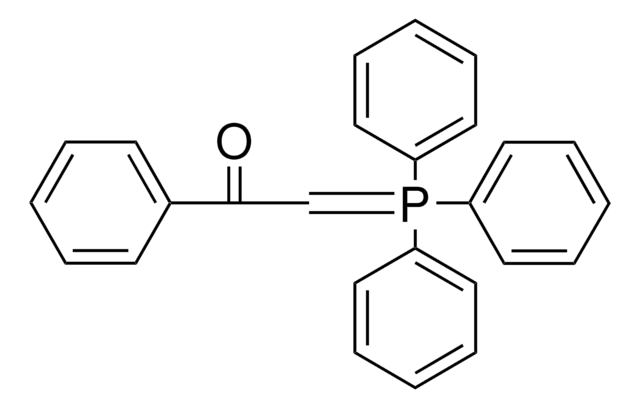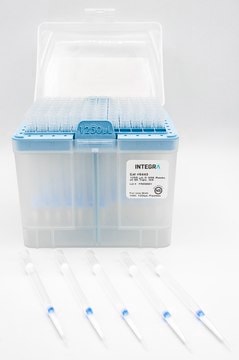ZTC18M
ZipTip® Pipette Tips
C18 resin, micro, bed volume 0.2 μL, tip volume 10 μL
Synonym(s):
ZipTip Pipette Tips
About This Item
Recommended Products
material
polypropylene
Quality Level
sterility
non-sterile
manufacturer/tradename
ZipTip®
parameter
4-70 °C temperature
technique(s)
analytical sample preparation: suitable
fractionation: suitable
protein purification: suitable (concentration)
bed volume
0.2 μL
thickness
15 μm
tip I.D.
3.375 mm
tip L
31 mm
tip O.D.
5.8 mm
tip volume
10 μL
pore size
200 Å pore size
pH
1.5-13.5
2-12(for 24 hour exposure)
capacity
2.0 μg binding capacity(typically; when used with saturating amounts of analyte)
shipped in
ambient
Application
Features and Benefits
- One-step desalting, concentration, and purification
- Allows fractionation of complex samples
- Ideal for peptides, proteins, nucleic acids, and more
- Maximum recovery without dead volume
- Eliminates time-consuming chromatography
Other Notes
Legal Information
Certificates of Analysis (COA)
Search for Certificates of Analysis (COA) by entering the products Lot/Batch Number. Lot and Batch Numbers can be found on a product’s label following the words ‘Lot’ or ‘Batch’.
Already Own This Product?
Find documentation for the products that you have recently purchased in the Document Library.
Articles
Improve your mass spectra with strategies to optimize sample preparation in protein and small molecule mass spectrometry.
Improve your mass spectra with strategies to optimize sample preparation in protein and small molecule mass spectrometry.
Improve your mass spectra with strategies to optimize sample preparation in protein and small molecule mass spectrometry.
Improve your mass spectra with strategies to optimize sample preparation in protein and small molecule mass spectrometry.
Protocols
Biomarkers play an essential role in the drug discovery and development process.
Biomarkers play an essential role in the drug discovery and development process.
Biomarkers play an essential role in the drug discovery and development process.
Biomarkers play an essential role in the drug discovery and development process.
Our team of scientists has experience in all areas of research including Life Science, Material Science, Chemical Synthesis, Chromatography, Analytical and many others.
Contact Technical Service








